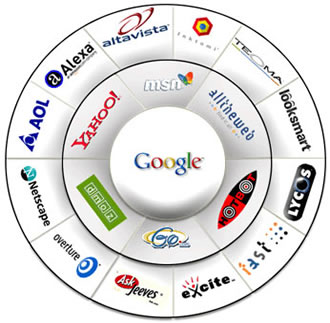 It is the search engines that finally bring your website to the notice of the prospective customers. Hence it is better to know how these search engines actually work and how they present information to the customer initiating a search.
It is the search engines that finally bring your website to the notice of the prospective customers. Hence it is better to know how these search engines actually work and how they present information to the customer initiating a search.
There are basically two types of search engines. The first is by robots called crawlers or spiders.
Search Engines use spiders to index websites. When you submit your website pages to a search engine by completing their required submission page, the search engine spider will index your entire site. A ‘spider’ is an automated program that is run by the search engine system. Spider visits a web site, read the content on the actual site, the site’s Meta tags and also follow the links that the site connects. The spider then returns all that information back to a central depository, where the data is indexed. It will visit each link you have on your website and index those sites as well. Some spiders will only index a certain number of pages on your site, so don’t create a site with 500 pages!
The spider will periodically return to the sites to check for any information that has changed. The frequency with which this happens is determined by the moderators of the search engine.
A spider is almost like a book where it contains the table of contents, the actual content and the links and references for all the websites it finds during its search, and it may index up to a million pages a day.
Example: Excite, Lycos, AltaVista and Google.
When you ask a search engine to locate information, it is actually searching through the index which it has created and not actually searching the Web. Different search engines produce different rankings because not every search engine uses the same algorithm to search through the indices.
One of the things that a search engine algorithm scans for is the frequency and location of keywords on a web page, but it can also detect artificial keyword stuffing or spamdexing. Then the algorithms analyze the way that pages link to other pages in the Web. By checking how pages link to each other, an engine can both determine what a page is about, if the keywords of the linked pages are similar to the keywords on the original page.